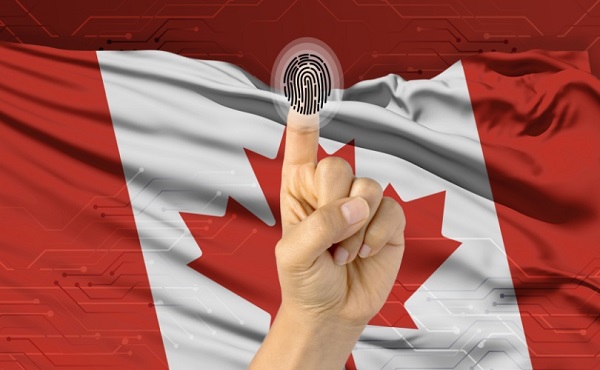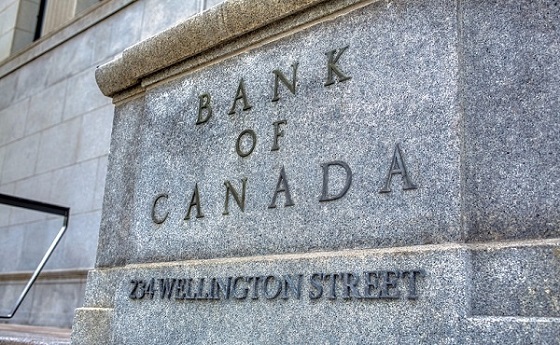Digital Currency
Conservatives urge Canadians to reject mandatory digital IDs proposed by Liberal gov’t

From LifeSiteNews
Canadian federal regulators have disclosed they are working on digital credentials for Canadians despite the fact MPs have repeatedly rejected the proposal over safety concerns.
The Conservative Party of Canada (CPC) called on Canadians to resist and oppose “mandatory digital ID.”
“He’s (Prime Minister Justin Trudeau) trying to encroach on your freedom and privacy, again. The Liberal government has been CAUGHT trying to create a mandatory digital ID,” the CPC said in a recent email to members.
As reported by LifeSiteNews, Canadian federal regulators have disclosed they are working on digital credentials for Canadians despite the fact MPs have repeatedly rejected the proposal over safety concerns.
Shared Services Canada, which is a federal IT department, is developing “digital credentials” like Social Insurance Numbers, which one needs in order to work.
The CPC has launched a petition that anyone can sign calling for Canadians to “oppose” any such digital ID system.
“This Liberal government can’t be trusted to protect confidential information. They have already been HACKED and scammed, costing Canadians hundreds of millions of dollars,” the CPC said.
The CPC noted that Trudeau is “trying to win re-election through TOTAL CONTROL.”
“Canadians do not want more intrusive government surveillance,” the CPC stated.
CPC leader Pierre Poilievre is opposed to digital IDs as well as a federal digital dollar, which seems to be on hold for now, and has promised to introduce a new online harms bill that would “expressly prohibit” digital IDs in Canada.
The Trudeau government is trying to push through laws affecting Canadians’ online freedoms such as Bill C-63 that seeks to punish “hate speech” online.
Banks
Top Canadian bank studies possible use of digital dollar for ‘basic’ online payments

From LifeSiteNews
A new report released by the Bank of Canada proposed a ‘promising architecture well-suited for basic payments’ through the use of a digital dollar, though most Canadians are wary of such an idea.
Canada’s central bank has been studying ways to introduce a central bank digital currency (CBDC) for use for online retailers, according to a new report, despite the fact that recent research suggests Canadians are wary of any type of digital dollar.
In a new 47-page report titled, “A Retail CBDC Design For Basic Payments Feasibility Study,” which was released on June 13, 2025, the Bank of Canada (BOC) identified a “promising architecture well-suited for basic payments” through the use of a digital dollar.
The report reads that CBDCs “can be fast and cheap for basic payments, with high privacy, although some areas such as integration with retail payments systems, performance of auditing and resilience of the core system state require further investigation.”
While the report authors stopped short of fully recommending a CBDC, they noted it is a decision that could happen “outside the scope of this analysis.”
“Our framing highlights other promising architectures for an online retail CBDC, whose analysis we leave as an area for further exploration,” reads the report.
When it comes to a digital Canadian dollar, the Bank of Canada last year found that Canadians are very wary of a government-backed digital currency, concluding that a “significant number” of citizens would resist the implementation of such a system.
Indeed, a 2023 study found that most Canadians, about 85 percent, do not want a digital dollar, as previously reported by LifeSiteNews.
The study found that a “significant number” of Canadians are suspicious of government overreach and would resist any measures by the government or central bank to create digital forms of official money.
The BOC has said that it would continue to look at other countries’ use and development of CBDCs and will work with other “central banks” to improve so-called cross border payments.
Last year, as reported by LifeSiteNews, the BOC has already said that plans to create a digital “dollar,” also known as a central bank digital currency (CBDC), have been shelved.
Digital currencies have been touted as the future by some government officials, but, as LifeSiteNews has reported before, many experts warn that such technology would restrict freedom and could be used as a “control tool” against citizens, similar to China’s pervasive social credit system.
The BOC last August admitted that the creation of a CBDC is not even necessary, as many people rely on cash to pay for things. The bank concluded that the introduction of a digital currency would only be feasible if consumers demanded its release.
Conservative Party leader Pierre Poilievre has promised, should he ever form the government, he would oppose the creation of a digital dollar.
Contrast this to Canada’s current Liberal Prime Minister Mark Carney. He has a history of supporting central bank digital currencies and in 2022 supported “choking off the money” donated to the Freedom Convoy protests against COVID mandates.
Censorship Industrial Complex
Conservatives slam Liberal bill to allow police to search through Canadians’ mail

From LifeSiteNews
Conservatives are warning that the Liberals’ new border bill will allow police to search Canadians’ mail.
During a June 5 debate in the House of Commons, Conservative Member of Parliament (MP) Frank Caputo voiced concerns over Bill C-2, the Strong Borders Act, which will permit police and government officials to open and examine Canadians’ mail.
“This is something I know I am going to get mail about,” Caputo said. “We are now talking about language in the Charter, what is referred to as an expectation of privacy.”
Bill C-2, introduced by the Liberals under Prime Minister Mark Carney, is framed as legislation to combat drugs making their way across the border. However, many have pointed out that it severely infringes on Canadians’ Charter rights.
The Liberals have failed to address this concern in their 130-page legislation, leading Conservatives to demand accountability.
“If they can put out a 130-page bill, certainly they can put out a four or five-page Charter statement,” he said. “Certainly, somebody in the government asked if it was Charter compliant — but they won’t say.”
Under Bill C-2, Canada would amend the Canada Post Corporation Act to “remove barriers that prevent police from searching mail, where authorized to do so in accordance with an Act of Parliament, to carry out a criminal investigation.”
It also seeks to “expand Canada Post inspection authority to open mail.”
As LifeSiteNews previously reported, legal organizations have warned that the legislation could lead to a cashless economy as it would ban cash payments over $10,000.
“Part 11 amends the Proceeds of Crime (Money Laundering) and Terrorist Financing Act to prohibit certain entities from accepting cash deposits from third parties and certain persons or entities from accepting cash payments, donations or deposits of $10,000 or more,” the legislation proposes.
In a June 4 X post, the Justice Centre for Constitutional Freedoms (JCCF) warned that “If Bill C-2 passes, it will become a Criminal Code offence for businesses, professionals, and charities to accept cash donations, deposits, or payments of $10,000 or more. Even if the $10,000 payment or donation is broken down into several smaller cash transactions, it will still be a crime for a business or charity to receive it.”
The JCCF pointed out that while cash payments of $10,000 are not common for Canadians, the government can easily reduce “the legal amount to $5,000, then $1,000, then $100, and eventually nothing.”
“Restricting the use of cash is a dangerous step towards tyranny and totalitarianism,” the organization warned. “Cash gives citizens privacy, autonomy, and freedom from surveillance by government and by banks, credit card companies, and other corporations.”
Similarly, Carney’s move to restrict Canadians is hardly surprising considering his close ties to the World Economic Forum and push for digital currency.
In a 2021 article, the National Post noted that “since the advent of the COVID pandemic, Carney has been front and centre in the promotion of a political agenda known as the ‘Great Reset,’ or the ‘Green New Deal,’ or ‘Building Back Better.’
“Carney’s Brave New World will be one of severely constrained choice, less flying, less meat, more inconvenience and more poverty,” the outlet continued.
In light of Carney’s new leadership over Canadians, many are sounding alarm over his distinctly anti-freedom ideas.
Carney, who as reported by LifeSiteNews, has admitted he is an “elitist” and a “globalist.” Just recently, he criticized U.S. President Donald Trump for targeting woke ideology and has vowed to promote “inclusiveness” in Canada.
Carney also said that he is willing to use all government powers, including “emergency powers,” to enforce his energy plan.
-

 Business2 days ago
Business2 days agoLatest shakedown attempt by Canada Post underscores need for privatization
-

 Business2 days ago
Business2 days agoWhy it’s time to repeal the oil tanker ban on B.C.’s north coast
-

 Alberta2 days ago
Alberta2 days agoPierre Poilievre – Per Capita, Hardisty, Alberta Is the Most Important Little Town In Canada
-

 Aristotle Foundation2 days ago
Aristotle Foundation2 days agoHow Vimy Ridge Shaped Canada
-

 Energy2 days ago
Energy2 days agoIf Canada Wants to be the World’s Energy Partner, We Need to Act Like It
-

 MxM News2 days ago
MxM News2 days agoUPenn strips Lia Thomas of women’s swimming titles after Title IX investigation
-

 Alberta1 day ago
Alberta1 day agoAlberta Provincial Police – New chief of Independent Agency Police Service
-

 International2 days ago
International2 days agoCBS settles with Trump over doctored 60 Minutes Harris interview






